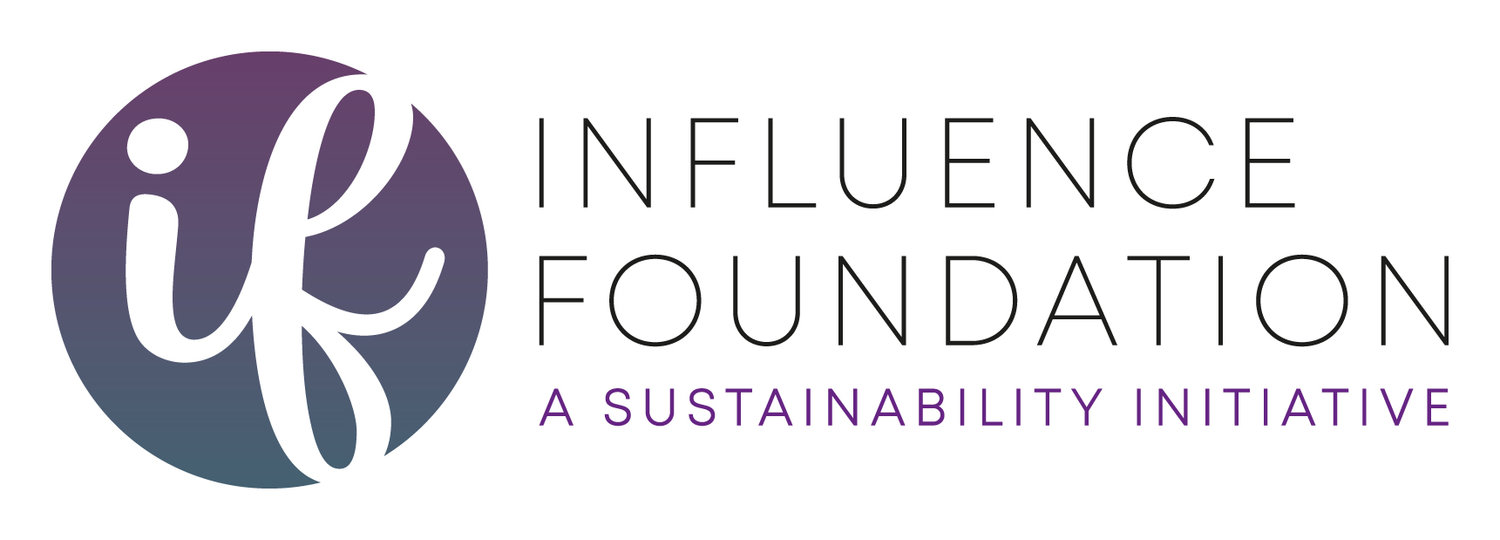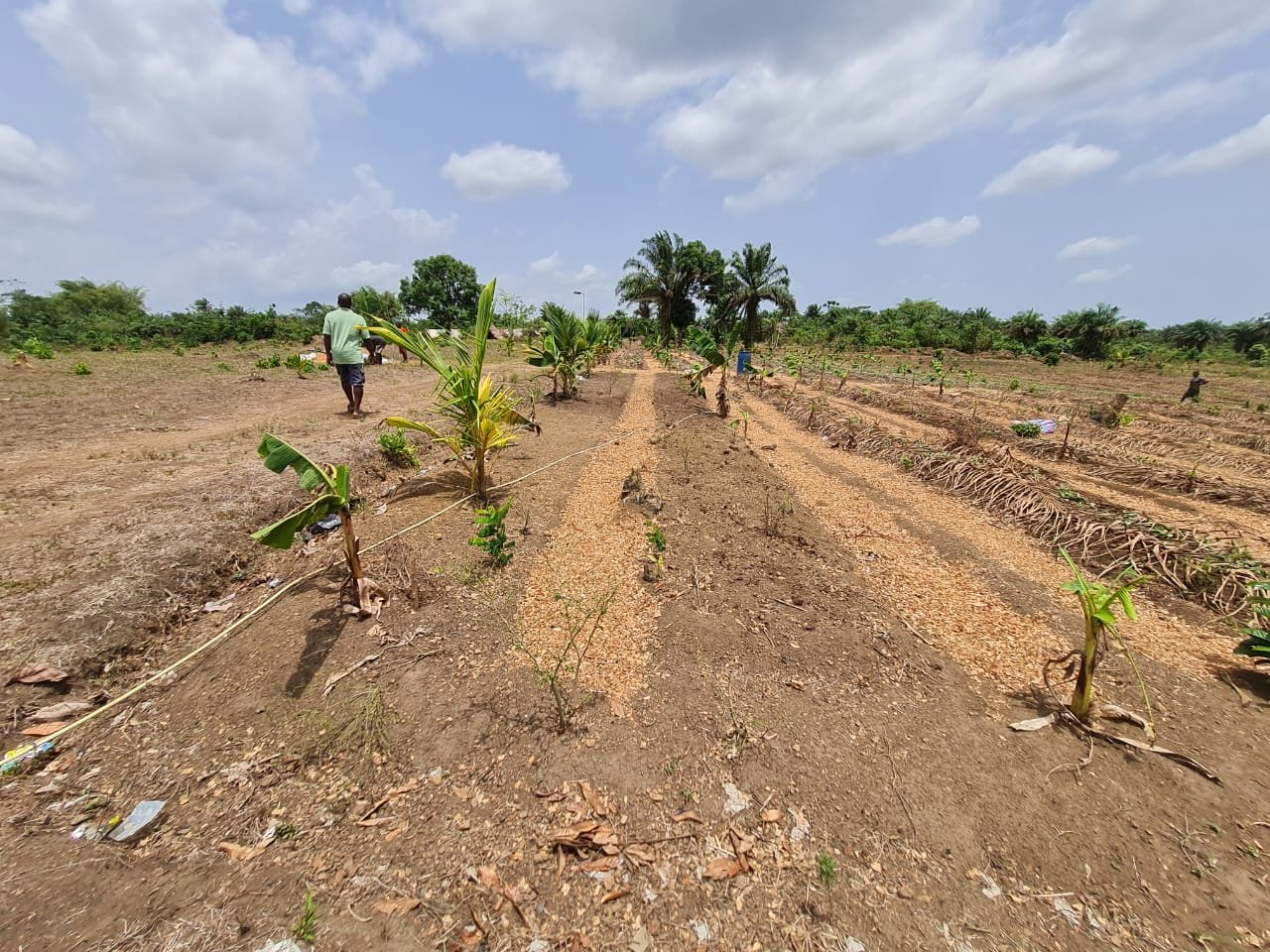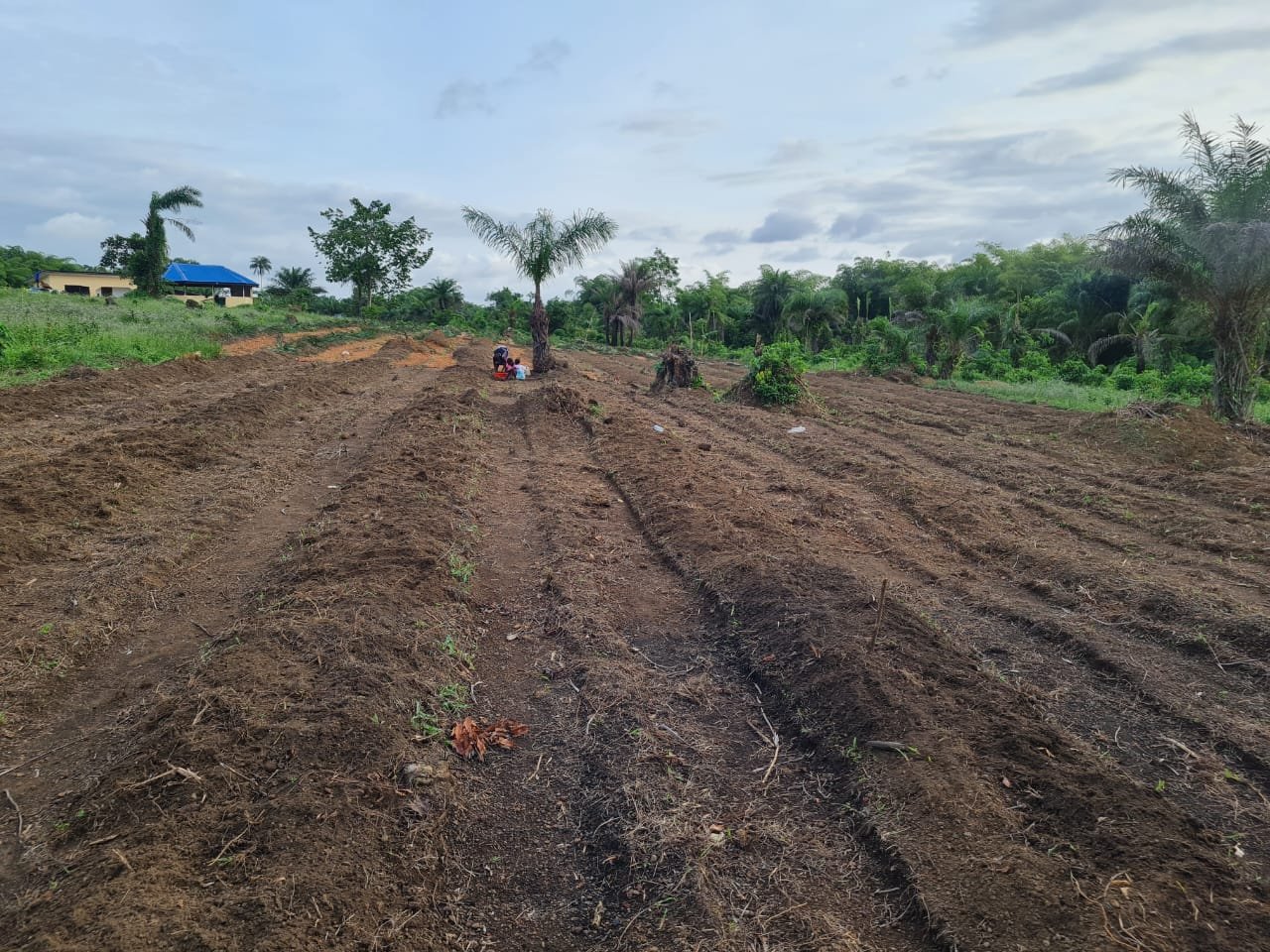HOW DOES A COUNTRY PIVOT FROM 100% IMPORT RELIANT TO INCREASING GDP & EXPORT HEALTHY. HOPE FARM organic, composting farming in Liberia, agro-economic initiative utilizing low impact multi cropping
Influence Foundation patrons commenced their work in Liberia in 2007 working under the support of the first female President elected in Africa, President Ellen Johnson Sirleaf, guided by her invited young Liberian National Orator after the wars, Kimmie Weeks. This work led to empowerment centers for women opening in Monrovia in 2008, Schools being built, teachers being given the tech tools for education, water and sewage being put across the country, wells being mended and then it was time for the future- Changing a 100% import dependent economy into a self sufficient feeding country, a farming country of low impact multi crops that can eventually be exported to Europe and North America.
It is our sense that the world today has a short period before food supply chains break down and healthy nutritious food is too expensive or scarce. We focus on stimulating these crops like yucca, plantain, coconut and even stone ground ancient wheats.
Hope Farm, Liberia under Dr/ Kimmie Weeks leadership and our influence, support and collaboration is a template Incubator example of what is possible for the entire country and also across the African continent supporting the requirements to meet The Sustainability Goals by 2030.
The Future of Food in Africa
Mission
Liberia, and more broadly West Africa, is one of the most fertile places on earth. Our mission is to ensure this region realizes its agricultural potential so it can achieve food sovereignty, food security, and economic prosperity utilizing environmentally friendly and ethical agricultural best practices.
Problem
Because of the lack of large-scale agricultural operations, Liberia spends a massive amount of its economic power to import food. Most of the produce imported are low quality, expired, or not safe for consumption. This is despite the fact that Liberia could be producing food in abundance not only to feed itself, but to become a net exporter of quality foods. The revenues could therefore be utilized to improve vital public sectors such as education and health care.
Each year, Liberia - a small country of 4 million and an annual GDP per capita of >$700 - spends $250M importing rice, $100M importing fish and fish oils, $50M on poultry eggs, and tens of millions on importation of other kinds of food products. This contributes to an annual trade deficit of well over $670M, which has a negative impact on the overall outlook of one of the world's poorest countries.
The World Banks and the African Development Bank recognize that food insecurity increases the likelihood of civil and political unrest. This was manifested in Liberia when slight increases in the price of a bag of rice led to the violent 1979 rice riots. The riots eventually led to Liberia’s bloody 1980 and eventually the civil war of 1989, which cost 250,000 lives and millions of dollars in infrastructural damages.
Since 2005, Liberia has been struggling to rebuild its economy in the aftermath of the horrors of the war. However, challenges are many, poverty is high and very often when development does come to the country, in the form of centralized or foreign power that enriches few and does very little for the many. Smallholder farmers are particularly challenged because their produce often rot before they can get it to the markets and Liberian produce in general are undervalued because there are few valueadded products being produced locally.
About Our Founder
Kimmie Weeks has spent his career, starting in his early teenage years, as a peace activist fighting for the wellbeing of Liberians. He’s credited for playing a key role in ending their first civil war by chairing the successful Children’s Disarmament Campaign. At age seventeen, while still a high school senior, his work against the use of children as soldiers led the government of former Liberian President Charles Taylor to make several attempts to assassinate him.
Kimmie was eventually evacuated from Liberia and granted political asylum in the United States where he started and spent most of his adulthood running Youth Action International (YAI), SInce its establishment in 2006, YAI which has provided education, health care, and economic empowerment to over 300,000 people in West and East Africa. Kimmie now sees this agricultural project as the key to advancing the hope, wellbeing, and safety of his people.
Model
We are a Liberian food and agriculture company doing everything from growing our own crops to creating brands and selling our products in the local markets.
We are doing several unique things that will help us succeed…
1. We are bringing organic farming best practices to Liberia. Liberia has some of the best soil in the world, but due to a lack of education around organic farming and agroforestry, Liberians have had to rely upon fertilizers. These fertilizers are too expensive for most to use, and those who do use them often hurt the environment and their soil over the long term.
2. We are bringing Agroforestry to Liberia. Liberian farmers typically grow a single crop, making them especially susceptible to ruin due to single crop failures.
3. We are making local poultry possible. Liberians have struggled with poultry because they have both used exotic chickens that require medication and housing that is too expensive for most, and also due to the lack of reliable feed. We are both prioritizing the growth of corn to feed our chickens and using our local breed of chicken that remains healthy in a free range environment without medication and requires less meals due to their ability to forage.
4. We are expanding by helping subsistence farmers become commercial farmers. Liberia has a large population of subsistence farmers. Often they have plenty of fertile land but lack what’s needed to significantly increase output. By buying them initial seed and providing the right tools and guidance, they will become part of our commercial farming network.
5. We are teaching young Liberians practical agriculture techniques and motivating them to utilize agriculture as a way to break out of poverty. Students from various universities and young people from the local community participate in active hands-on training workshops.
Progress
We acquired a 10 acre farm near Monrovia. We’ve been using the property to pilot and refine our model. On it we organically grow plantains, bananas and avocado trees. Intercropped between the trees are a mixed variety of other crops including corn, watermelon, pepper, pineapple and collard greens. The farm also includes poultry for eggs. We have recently begun selling our first crops.
Raise and Roadmap
We are currently raising $100,000 to purchase a reliable vehicle to take produce to market, expand our poultry production facilities, provide packaging for eggs, introduce pigs for compost manure, cultivate more areas with plantains, and fence the property.
We are also applying for a larger grant from the World Bank to support all aspects of Hope Farms farming impact, as well as moving into the production of flour and packaged products for sale across Liberia as well as export as ingredients for vendors in N.America and Europe.
Long-Term Vision
The long term vision for the farm is to work collaboratively with smallholder farmers across the country to ensure that through a cooperative structure, their produce earns an income and therefore generates better revenues for themselves and their families. This will be done in two strategic parts:
1. Production of value added products: Create a small factory on the farm to produce chips from plantain and yucca and fruit drinks. While our farm alone would be too small to supply all the produce needed for production, we would work with small holder farmers and purchase similarly produced products bought by the farm and produced into proudly locally made quality products.
Produce plantain flour for local use and export: plantain flour is becoming a popular alternative to wheat flour. The Liberian climate is ideal for the production ofplantain. Through a similar arrangement like the production of chips and juices, a small plantain flour mill and bagging facility will be set up to produce plantain flour for local consumption and export





















































